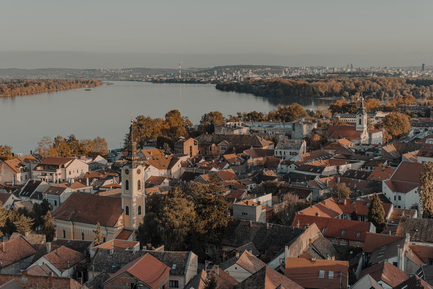
Apply to a foreign university with confidence
- Properly fulfilled documents
- Perfect motivation letter
- Support from a personal mentor
- Offers from several universities
Article score: 4 out of 5 (1 review)
Everything you need to know about language courses in Norway: admission, tuition fees, best language schools, programs, and how to get a visa.
Free consultation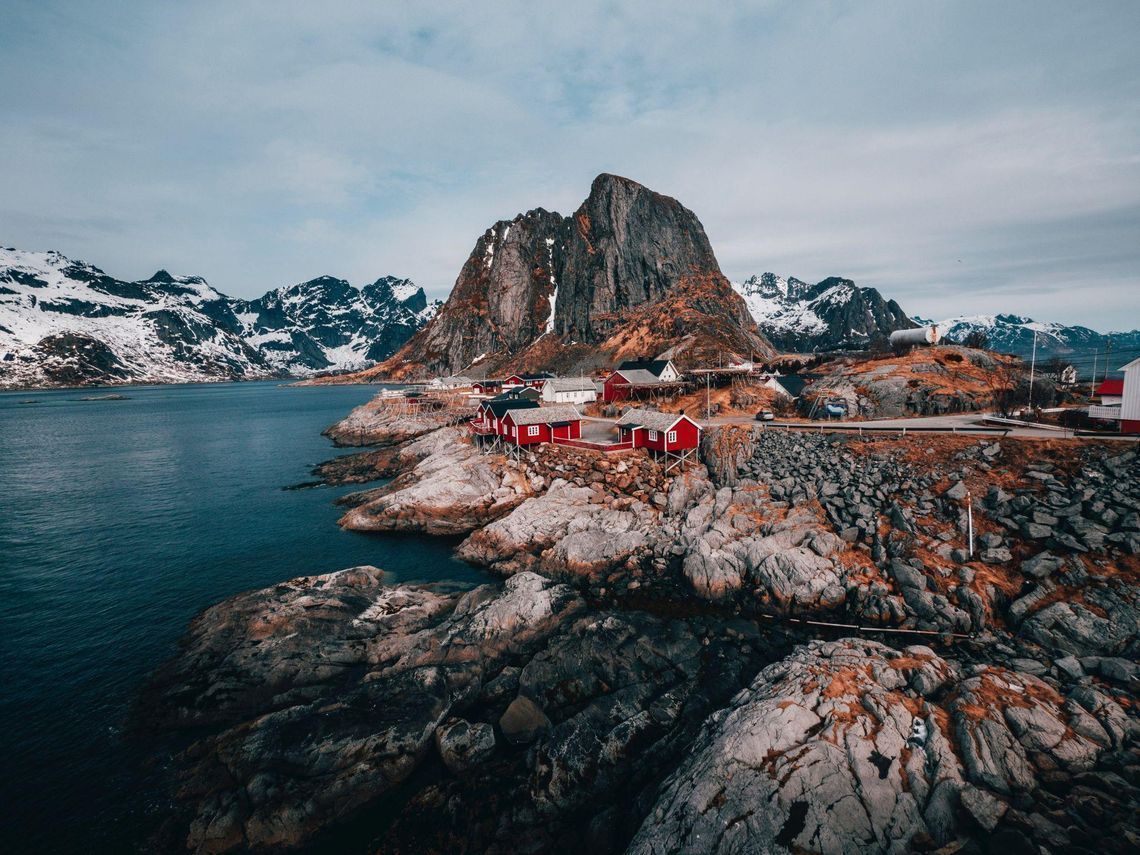
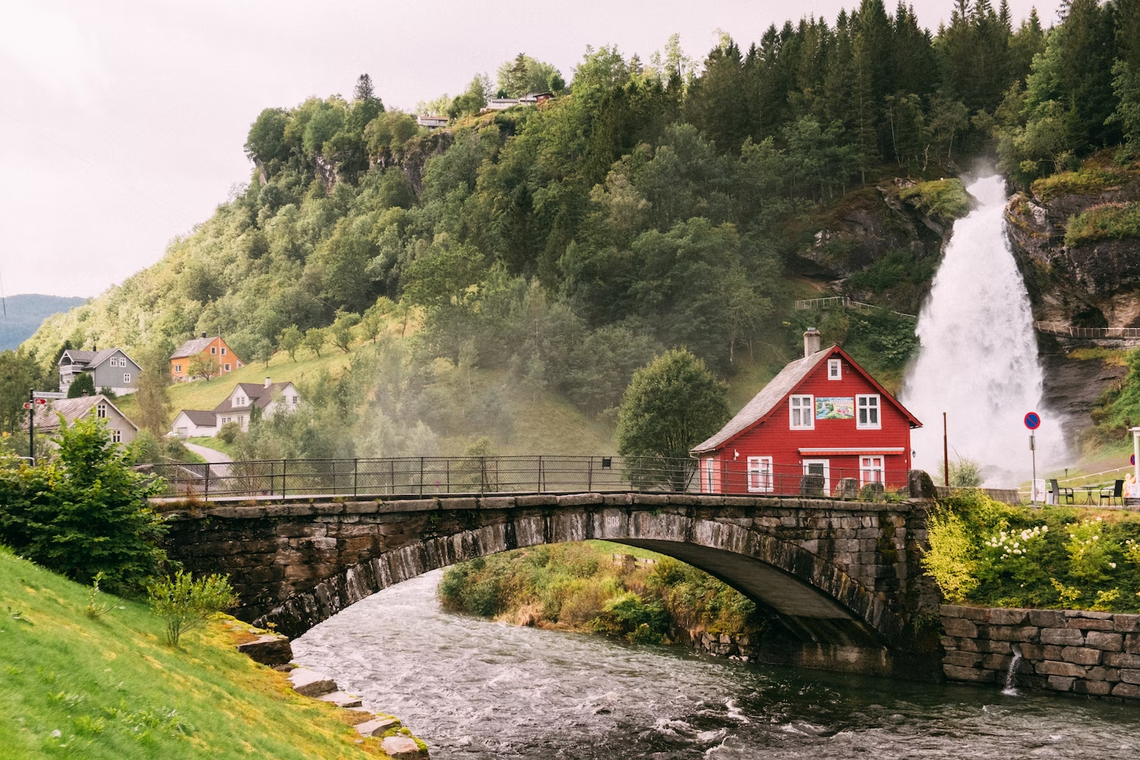
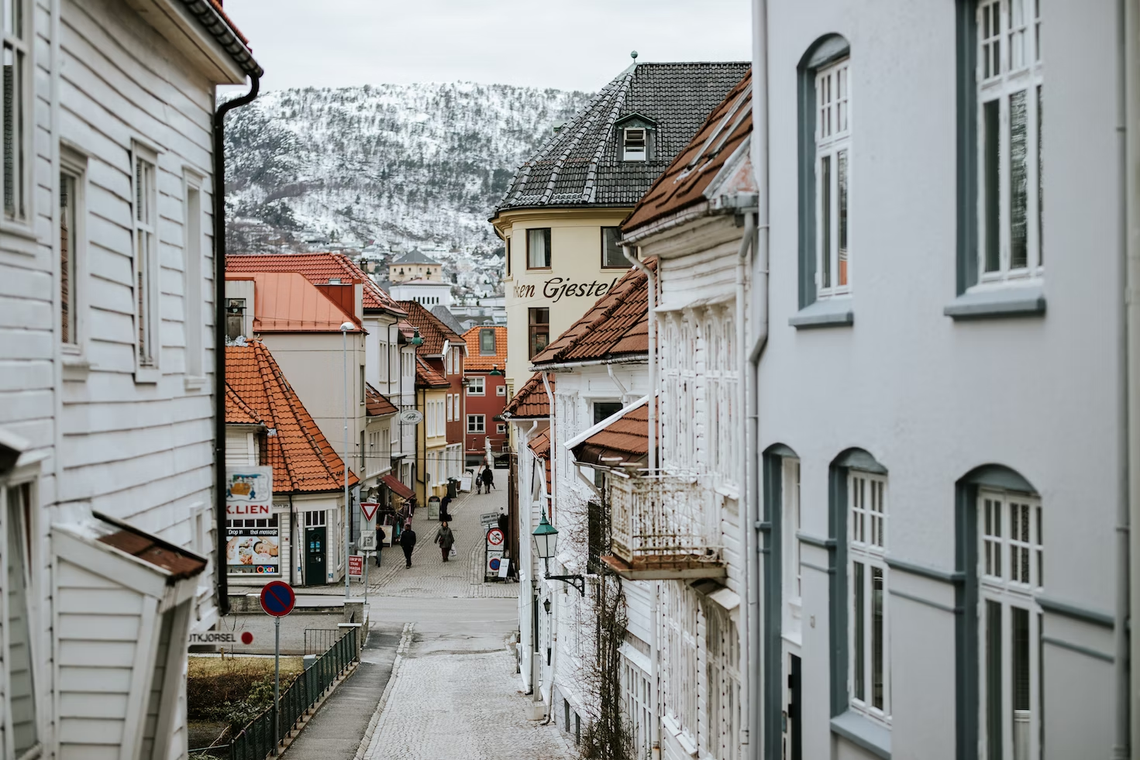
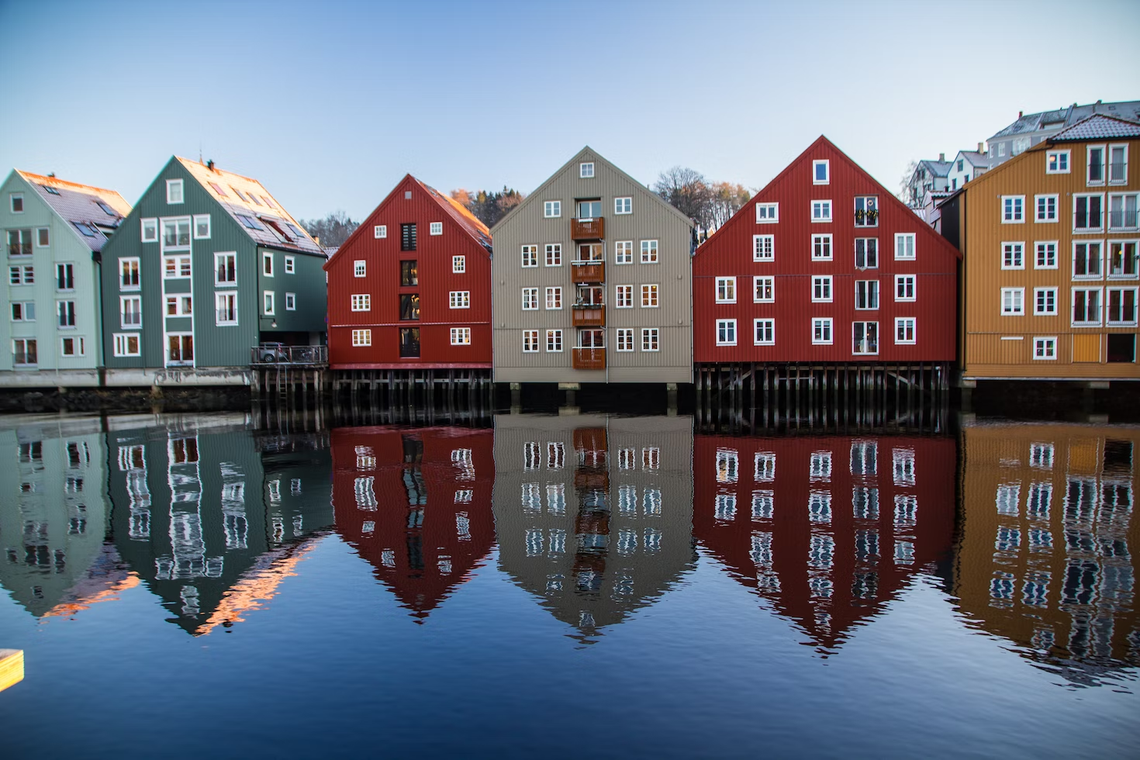

Language courses in Norway are suitable for true adventurers. Norwegians are fond of an active lifestyle, and it will be challenging to not follow their example. Most programs last 4 or more weeks with low intensity. Therefore, you will have plenty of time to explore the picturesque mountains, forests, and fjords.

| School | Program | Duration | Tuition / Course | Cities |
|---|---|---|---|---|
| University of Oslo | Intensive Norwegian Level 1-4 | 6 weeks | 1,317 USD | Oslo |
| Norwegian Level 1-4 | 1 semester | 1,317 USD | ||
| Folkuniversitetet | Norwegian Level A1-C1 | 7-12 weeks | 586 USD | 27 cities in Norway |
| Norwegian – Preparation course for Bergenstesten | 5 weeks | 636 USD |
When applying for a language course, a lot of time is spent searching for information and clarifying the nuances of programs and accommodation options in Norway.
UniPage cooperates only with accredited language schools, which, in addition to quality education and comfortable accommodation, provide our clients with discounts on courses. Our experts will tell you in detail what programs are available at Norwegian schools and universities, help you fill out an application, and ultimately save your time.
| Type of program | Intensity | Group | Min. language requirements | Avg. cost per week |
|---|---|---|---|---|
| Summer Courses | 15-20 | 5-16 | Beginner | 212 USD |
| Level Courses | 5-20 | 8-12 | Beginner | 339 USD/2 weeks |
| Individual Lessons | 12-20 | 1 | Beginner | 856 USD |
| Couple Lessons | 12-20 | 2 | Beginner | 505 USD |
| Norwegian for Specific Purposes | 10-20 | 5-16 | Depends on the program | 560 USD/2 weeks |
| Bergenstest Preparation | 5-6 | 3-6 | Upper-Intermediate | 372 USD/4 weeks |
| Folkuniversitetet General Courses | 5-15 | 8-12 | Beginner | 586 USD/2 months |
| Norwegian Courses at Universities | 5-8 | 8-12 | Elementary | 1,317 USD/semester |
| Intensive Summer Courses at Universities | 10-15 | 8-12 | Beginner | 1,317 USD/6 weeks |
General Norwegian courses are common at Norwegian language schools. These programs are divided into levels, throughout which students simply learn the language without additional electives. There is no single name for them — at some schools, they are called Level Courses, while at others they are known as Norwegian Course Level A1-C2 or Intensive Norwegian. In addition, the following programs are offered:
Intensive Summer Courses are intensive programs at Norwegian universities, lasting 3-6 weeks. Upon completion, the student takes an internal exam and receives credits.
Norwegian Courses — general Norwegian courses at universities. Such programs last from one semester to a year, but they are only available to citizens of the EU and Norway. At the end of the course, students receive credits. At some universities, such as the University of Bergen, these courses are offered only to those who are already studying or working at the university.

There are few language schools in Norway. Programs do not greatly differ in variety — there are only general, summer, and several specialized courses.
Norwegian can be studied at so-called folk universities (Folkuniversitetet). They are in almost every city, from small Tromsø to the capital Oslo.
Getting into a folk university or a language school is easy — all you have to do is fill out a registration form on the website and pay the course fee. Before applying for a course, you will also be asked to take a language proficiency test. The results will help teachers place you in the right group.
Universities offer summer, semester, or annual programs. That being said, if you do not have citizenship or a residence permit in Norway or EU / EEA countries, you can only pursue summer programs. Such programs are short-term (3-6 weeks), and you can attend them with a regular visitor visa. Norway does not issue a student permit for long-term language courses (from 3 months).
University language course students are perceived as potential applicants — upon completion, students receive credits that are counted upon admission. Therefore, the admission process is more difficult. To enroll, you need to meet the basic requirements for university admission — a certificate of secondary general education, one year of university studies in your home country, and knowledge of English at the Intermediate (B1) level.
Admission process for university summer courses:
* In Norway, education is free. This also applies to language courses. At many universities, such as the Norwegian University of Science and Technology,[2] you only need to pay a semester fee. But at some, like the University of Oslo, you will have to pay for the entire course.
Be sure to carefully read the course cancellation and refund policy. A portion or the full program cost may be withheld, depending on the institution.
Some universities, such as the University of Oslo[3] and Nord University[4], note that long-term courses are available only for citizens and residence permit holders of Norway and EU / EEA countries. Study permits are not issued for such programs.
However, Volda University College clarifies that there is a small chance to obtain a study permit for annual language courses at the university, if afterwards you continue your studies within the framework of a bachelor's, master's, or doctoral program[5].
Therefore, each case must be considered on an individual basis and information should be requested from the university, visa center, or consulate of Norway.
Language schools in Norway work with students using a communicative method. In the classroom, students communicate and work in groups. Through interactive activities, students practice new grammar structures and vocabulary in a relaxed and enjoyable environment. At the same time, teachers manage to pay attention to each student — each classroom has from 5 to 15 students.

| Accommodation options | Meals | People per room | Avg. cost |
|---|---|---|---|
| Apartment | None | 1 | 765 USD/month |
| Hotel | Optional | 1-2 | 517 USD/week |
| Expense | Avg. cost | |
|---|---|---|
| Consular embassy fee | 90 USD | 555 USD |
| Semester fee | 56 USD | |
| Study materials | 47 USD | |
Additional expenses may also include the delivery of an invitation by express mail, medical insurance, and airport transfers. The exact amount must be clarified with the representatives of the chosen school.
| Service | Cost |
|---|---|
| Complete guidance in registering for courses — language schools abroad | 38,000 ₽ |
| Complete guidance in the admission process — university language courses | from 75,000 ₽ |
| Visa guidance | 69,000 ₽ |

You can take language courses in Norway only with a visitor visa, which is issued for up to 90 days. The application must be submitted to the VFS visa center. Before that, you must fill out an application form and pay the visa fee on the application portal. Visa consideration usually takes no more than 15 days, but it is worth submitting an application 4 weeks before departure.
You will also have to be fingerprinted.
Required documents:
To study in Norway for over 90 days, you need to apply for a residence or study permit. However, it cannot be issued for language programs.
The University of Oslo is the best university in Norway, ranking 102 in the QS rating. It offers two types of courses — semester and summer intensive.
Semester programs have an intensity of 5-8 hours per week. They last 5 months (one semester). Therefore, if you do not have citizenship or a residence permit in Norway or the EU, you will not be able to enroll.
Summer courses have a higher intensity. They also give 15-20 credits and last 6 weeks. In the first three weeks, you are offered to take additional courses in New Norwegian (nynorsk) and Norwegian grammar.
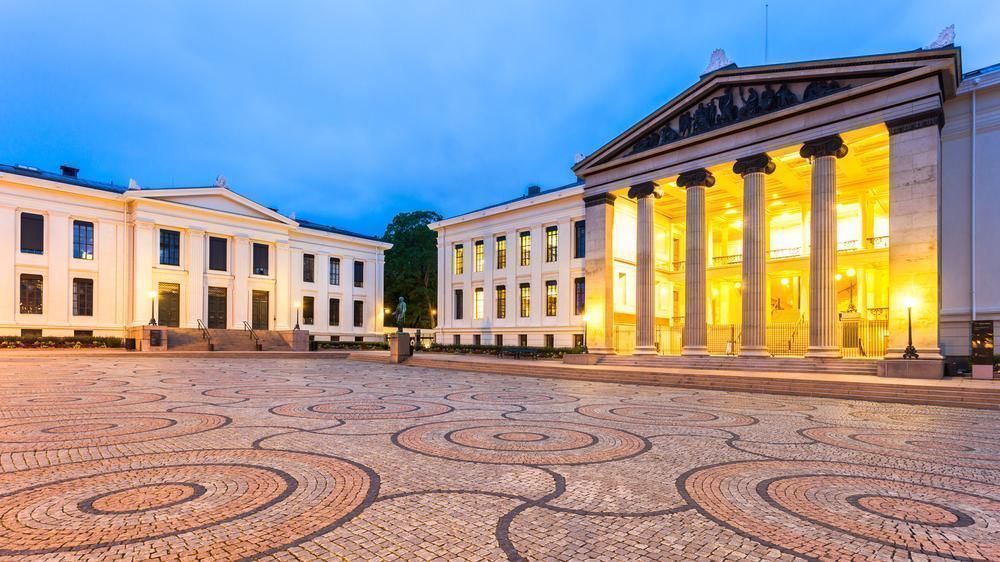
Folkuniversitetet consists of 22 member organizations, eight regional offices, and 70 local branches. Courses are held in 300 municipalities of the country, so wherever you go, you will find a place to learn Norwegian. One course lasts 1-1.5 months, with a total of 48 hours. Classes are held 2-4 times a week.

| Fylke | Oslo |
| Attractions | Akershus Fortress, Vigeland Sculpture Park, Viking Ship Museum, Munch Museum, Oslo Opera House, Holmenkollen ski jump |
| Monthly expenses (excluding rent) | 1,113 USD |
| Fylke | Hordaland |
| Attractions | Bergen Embankment, Bergenhus Medieval Fortress, Trollhaugen, Bergen Technical Museum |
| Monthly expenses (excluding rent) | 1,074 USD |
| Fylke | Trøndelag |
| Attractions | Nidaros Cathedral, Munkholmen, Ringve Museum, Bakklandet, Sverresborg Trondelag Folk Museum |
| Monthly expenses (excluding rent) | 1,014 USD |
60+ countries
we work with
$1,000,000 saved
by students through scholarships
6,400 offers
our students got